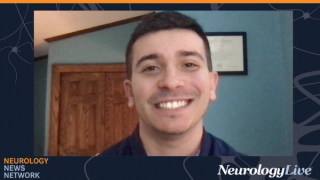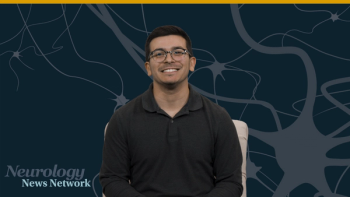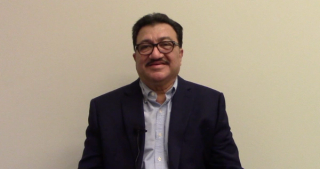
Sleep Disorders
Latest News
Latest Videos

CME Content
More News

Here's some of what is coming soon to NeurologyLive�® this week.

Test your neurology knowledge with NeurologyLive®'s weekly quiz series, featuring questions on a variety of clinical and historical neurology topics. This week's topic is general neurology.

Take 5 minutes to catch up on NeurologyLive®'s highlights from the week ending November 24, 2023.

Sodium Oxybate Shows Potential as Effective Therapy for Alcohol-Responsive Essential Tremor of Voice
In a phase 2 study, sodium oxybate showed a significant, albeit short-lived, reduction in voice symptoms for patients with alcohol-responsive essential tremor of voice.

Here's some of what is coming soon to NeurologyLive® this week.

Take 5 minutes to catch up on NeurologyLive®'s highlights from the week ending November 17, 2023.

Here's some of what is coming soon to NeurologyLive® this week.

Test your neurology knowledge with NeurologyLive®'s weekly quiz series, featuring questions on a variety of clinical and historical neurology topics. This week's topic is Parkinson disease.

Brendon Yee, PhD, a respiratory and sleep physician at the Woolcock Institute of Medical Research, discussed findings from a recent phase 1 trial presented at World Sleep Congress 2023 in which ALKS 2680 demonstrated improvements in wakefulness among patients with narcolepsy type 1.

Neurology News Network for the week ending November 11, 2023. [WATCH TIME: 3 minutes]

Take 5 minutes to catch up on NeurologyLive®'s highlights from the week ending November 10, 2023.

Catch up on any of the neurology news headlines you may have missed over the course of October 2023, compiled all into one place by the NeurologyLive® team.

Preliminary data from a phase 1 study suggest that ALKS 2680, an investigational orexin 2 receptor agonist, is safe and improves sleep latency in narcolepsy patients, leading to plans for a phase 2 study.

Modius Sleep is designed to send a safe electrical pulse into the vestibular nerve, influencing the areas of the hypothalamus and brain stem that control circadian rhythm and sleep patterns.

Here's some of what is coming soon to NeurologyLive® this week.

AI could revolutionize patient advocacy by bridging communication gaps between patients and providers, and the synergy of medicine and AI offers a promising avenue for enhanced patient care and operational efficiency.

L. John Greenfield Jr, MD, PhD, “spoke” about the future of artificial intelligence in neurology with ChatGPT-4—one of the largest language modules that have grabbed the field’s interest.

There should be a holistic approach to how the systems in place affect equity: how medicine is practiced and research is conducted, the structure of academic institutions, and how media influence our perceptions of neurologic conditions.

Neurology News Network for the week ending November 4, 2023. [WATCH TIME: 3 minutes]

Take 5 minutes to catch up on NeurologyLive®'s highlights from the week ending November 3, 2023.

Presented at the 2023 World Sleep Congress, preclinical findings highlighted ORX750's potential as a novel treatment not only for narcolepsy type 1 but also for broader sleep-wake disorders, including narcolepsy type 2 and idiopathic hypersomnia.

A recent study assessing TAK-861, an orexin-type 2 receptor agonist, high and lose doses of the therapy demonstrated improvements in wakefulness compared with the placebo in healthy adult men.

Here's some of what is coming soon to NeurologyLive® this week.

Test your neurology knowledge with NeurologyLive®'s weekly quiz series, featuring questions on a variety of clinical and historical neurology topics. This week's topic is ataxias.

A group of sleep experts discuss the importance of timely and accurate diagnosis, recent approvals, and available treatment options for managing a chronic disorder and its symptoms.

















